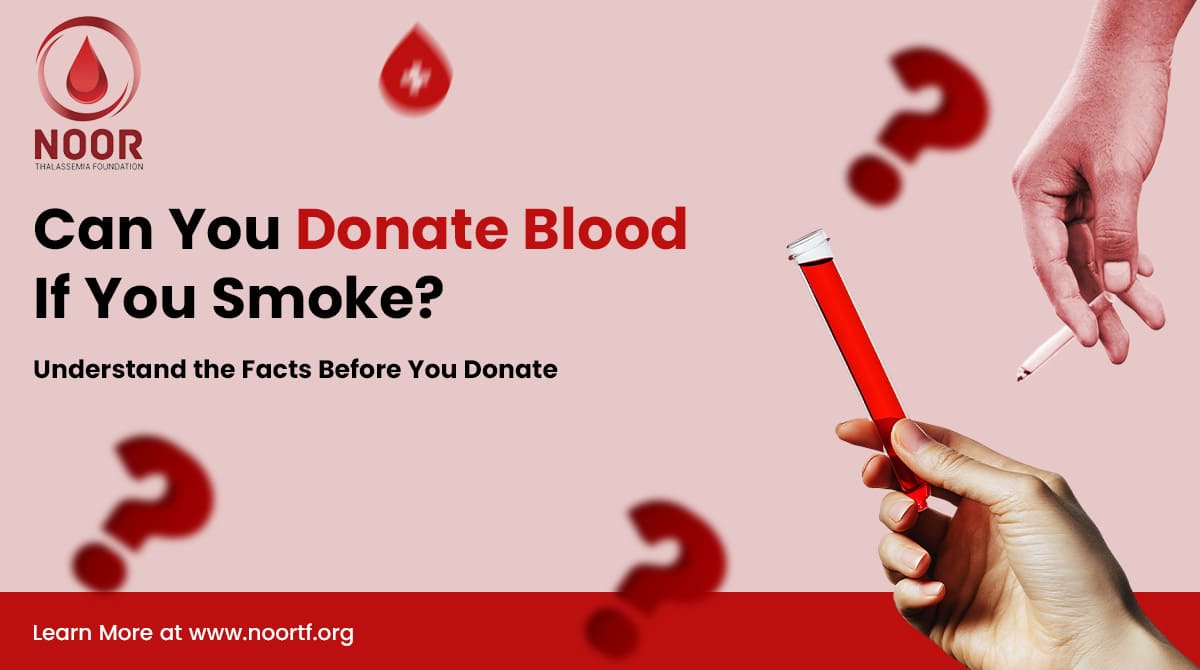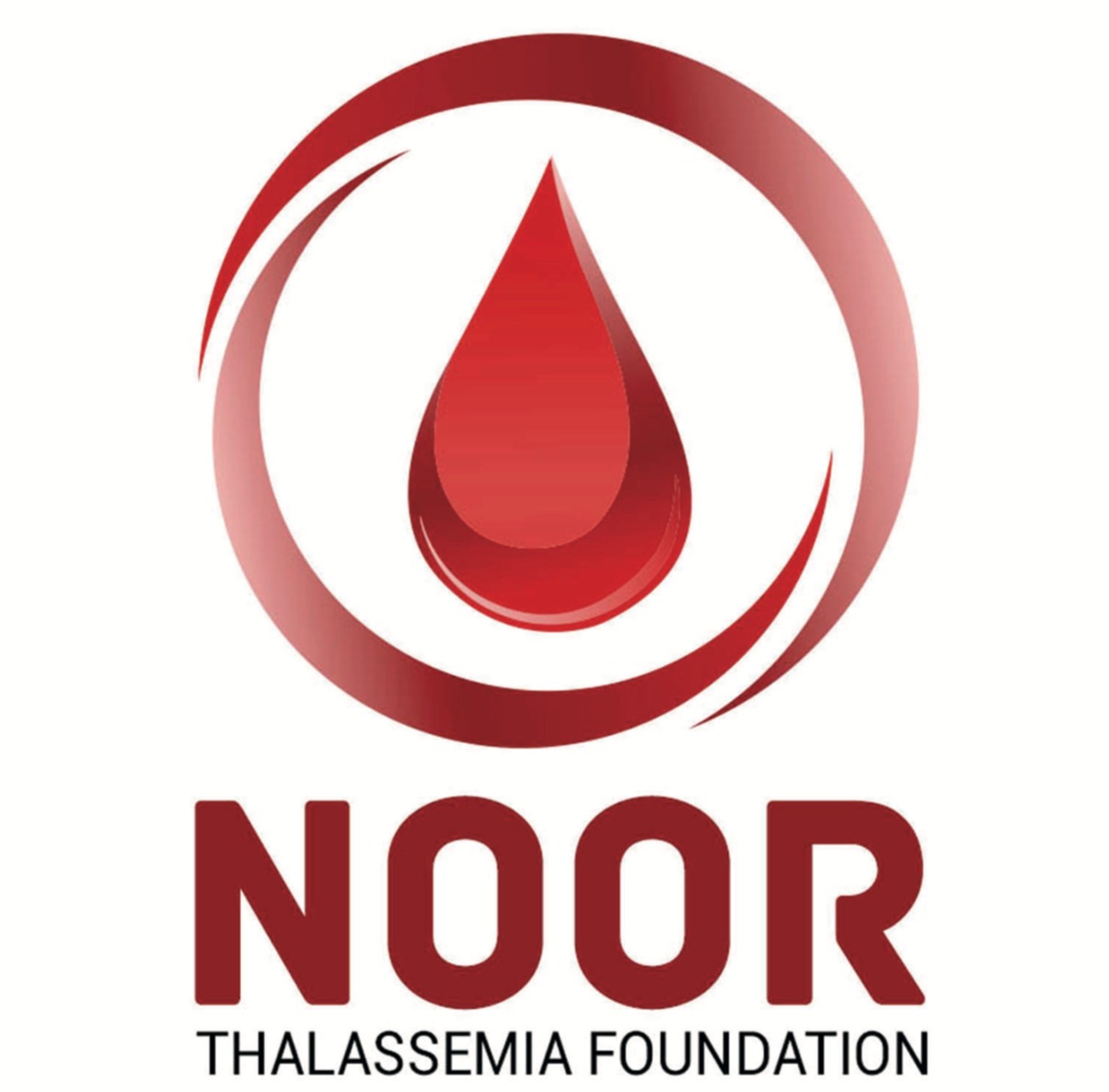Can You Donate Blood If You Smoke?
25-Jul-2025

Can you donate blood if you smoke? Discover the truth about smoking, weed, diabetes, tattoos, and other health factors that affect blood donation eligibility.
Donating blood is essential for saving lives because it can be used to treat several illnesses, including hemophilia, cancer, and thalassemia. Every year, countless patients in need of urgent medical care depend on blood donations. To protect both themselves and the recipient, donors must adhere to several guidelines. Potential donors frequently ask: Is it possible to donate blood if you smoke?
Although smoking doesn't automatically preclude you from giving blood, it's vital to think about how it affects your health and your capacity to deliver. Together with other commonly asked questions about blood donation, let's take a closer look at this subject.
Benefits of Blood Donation
Donating blood not only saves lives but also provides significant health benefits for the donor. The process of blood donation helps to:
- Improve Heart Health: Regular blood donation has been linked to a reduced risk of heart disease. It helps lower iron levels in the body, which can reduce the risk of heart disease, including heart attacks.
- Boost Red Blood Cell Production: After donation, your body works to replenish lost blood, stimulating the production of new red blood cells, which contributes to overall good health.
- Burn Calories: Donating blood can burn up to 650 calories, making it a surprising, yet positive, side effect of donating.
- Detect Health Issues Early: The screening process before blood donation helps identify potential health issues, including conditions such as high cholesterol or hypertension.
However, while there are many benefits, there are also certain factors that may affect your eligibility to donate blood, such as smoking, alcohol use, or specific health conditions.
Can You Donate Blood If You Smoke Weed?
As long as the donor is in good health at the time of donation, smoking marijuana usually does not preclude someone from giving blood. However, you might not be permitted to donate until the effects of marijuana wear off if you were under its influence when you donated. To guarantee that your body is in the best possible state to undergo the procedure safely, it is always best to donate blood while intoxicated.
Age Criteria for Blood Donation
The minimum age to donate blood is 18, and the maximum age is typically 65 in most countries, including Pakistan, the United States, and India. Donors over 60 may be required to undergo additional health screenings, and some organizations may accept donations from people as young as 17, provided they have parental approval. You are eligible to donate blood if you are within the required age range and fulfil the other health requirements.
Blood Donation Camp
Blood donation camps are planned gatherings where people come together to donate blood to those in need. For hospitals and other healthcare facilities to have a consistent supply of blood, these camps are essential. To support its goal of providing free treatment to underprivileged patients with diseases such as thalassemia, hemophilia, and cancer, the Noor Thalassemia Foundation, for example, frequently hosts blood donation camps. These camps are an excellent way for individuals to help save lives and give back to their community.
Report on Blood Donation Camp
Reports from blood donation camps usually include information on the quantity of donations, the eligibility and health of donors, and the event's overall success. These reports are crucial for upholding transparency, ensuring that the blood collected is appropriately handled, and evaluating the camp's effectiveness. They also make it possible for groups like the Noor Thalassemia Foundation to ensure that each blood unit is used efficiently to aid those in need.
Blood Donation Center
People can regularly donate blood at a blood donation center. These facilities are designed to collect, process, and store blood for later use. To guarantee the recipient's and donor's safety, they frequently have medical personnel on hand. To ensure that your donation reaches those who genuinely need it, it's crucial to visit a reputable facility if you're considering donating blood, such as those run by the Noor Thalassemia Foundation.
What is Power Red Blood Donation?
Donating twice as many red blood cells as you would with a standard donation is known as a double red blood cell donation. Patients with anemia, trauma, or surgeries requiring a high volume of red blood cells will benefit most from this technique. Apheresis, a process that separates red blood cells from other blood components and returns the remainder to the body, is frequently used for this type of donation.
Does Donating Blood Burn Calories?
Giving blood indeed burns calories. A single blood donation can burn about 650 calories on average. This is because your body expends energy to replenish the blood lost during the donation procedure. It's an intriguing byproduct of blood donation, although it's not the primary strategy for weight loss.
Noor Thalassemia Foundation:
A nonprofit organization called the Noor Thalassemia Foundation (NoorTF) is committed to providing free medical care to individuals with thalassemia, hemophilia, and other related conditions. The lives of impoverished patients who are unable to afford the high cost of treatment are greatly enhanced by NoorTF. To further their goal, they run blood donation drives, fundraising events, and education campaigns. Contributions to this admirable cause are always welcome, and each one significantly improves the lives of those who are less fortunate.
You can make a direct donation to NoorTF to support its ongoing efforts. Families affected by life-threatening illnesses can receive the care and treatment they need thanks to your generous donation. To learn more about how you can support Noor Thalassemia Foundation, visit their website.
Conclusion:
In a nutshell, smokers can donate blood. But there are a few things to keep in mind. Although it may have an impact on your feelings both during and after the donation, smoking does not automatically disqualify someone from giving blood. Nicotine cigarettes' nicotine and other chemicals can raise blood pressure and heart rate, which can be uncomfortable. To prevent any complications, it is recommended that you abstain from smoking for at least one hour before giving blood
FAQs
1. Can I donate blood if I have asthma?
Yes, as long as your asthma is well-controlled and you're not having an active asthma attack at the time of donation, you can donate blood.
2. Can you donate blood if you're pregnant?
Pregnant women are not eligible to donate blood. Once you have delivered, you can donate blood after a six-week recovery period.
3. How often can I donate blood?
You can donate whole blood once every 56 days. If you're donating platelets, you can donate up to 24 times a year.
4. Do I need to eat before donating blood?
Yes, it's essential to eat a healthy meal before donating blood. This helps maintain your blood sugar levels and ensures you feel good during the donation process.
5. Can I donate blood if I'm on medication?
If you're taking medication, it's best to consult with your doctor or the blood donation center to ensure it's safe for you to donate.
6. Can I donate blood if I have high blood pressure?
If your high blood pressure is well-controlled and you're not on medication that affects your blood pressure, you can usually donate blood.
 +042 111 666 783
+042 111 666 783